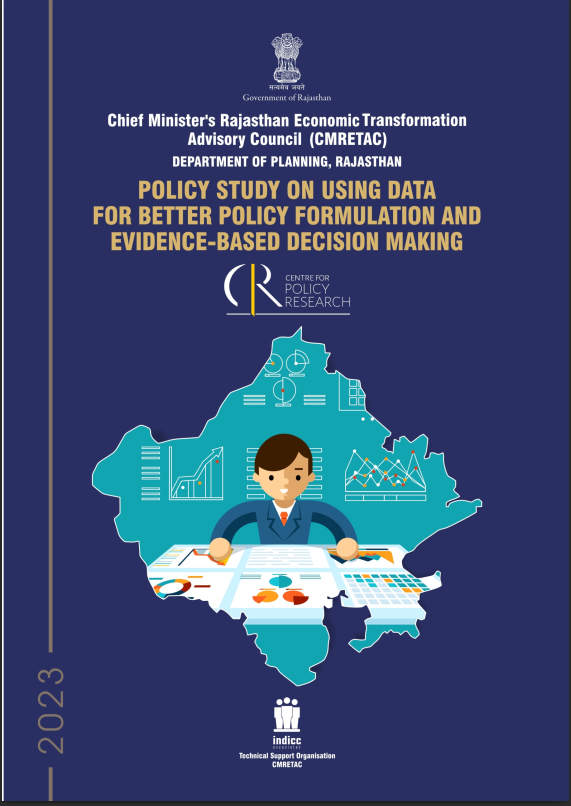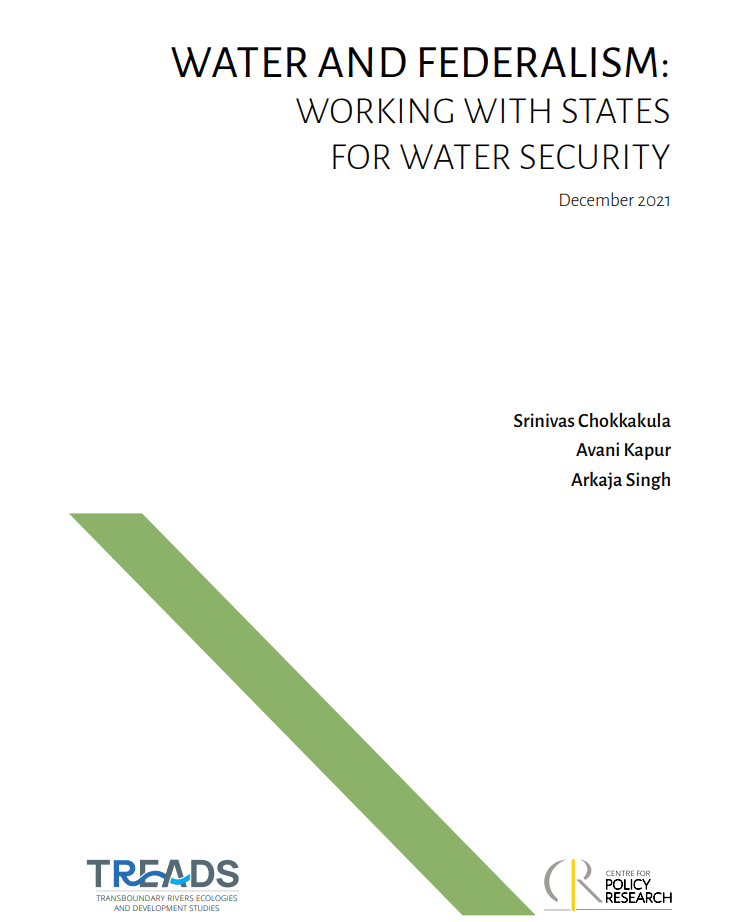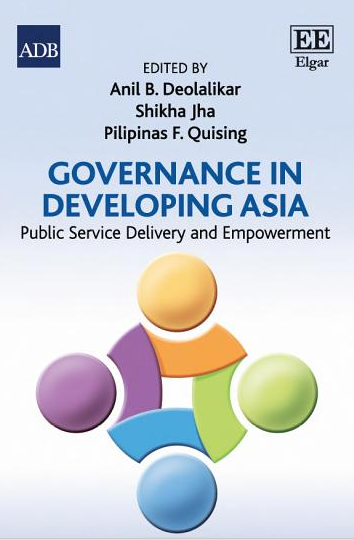
Welfare governance in sectors such as education, health and Panchayati Raj involve a comprehensive exercise of collecting and using data in innovative ways. The use of data can enable making decisions based on evidence (what is referred to as ‘evidence-based decision making’) rather than biases and assumptions. For this, an effective data governance framework is required that can enable setting standards for collecting data, sharing data across departments and encouraging a data-based comprehension of policy challenges.
In 2023, the Accountability Initiative was commissioned by the Chief Minister’s Rajasthan Economic Transformation Advisory Council
(CMRETAC) to undertake a study to recommend suggestions on how to strengthen data systems and enable the state for more effective evidence-based decision-making.
In this report, we assess three sectors of education, health and Panchayati Raj to unpack how data is collected, its usability, use cases of data and how data can feed into policy improvement. On conducting in-depth interviews and focused group discussions with functionaries across all tiers of governance in these three departments, we identified that each sector is a different stage of adoption of evidence-based decision making. For example, the education sector uses a unified Shala Darpan portal for school management and generation of report cards while health uses over – applications for similar management practices. Both sectors along
with Panchayati Raj required stronger capacities at the frontline to collect and use the data. Publication of anonymised data in the public domain (as open data) remains limited. Large governing principles such as a clear identification of what data is required at which stage in the policy cycle was missing.

This study explores the Union government’s role in influencing and incentivising better Water Resources Management outcomes in the states through the policy, legal, financial, and institutional instruments at its disposal.
This is also crucial for India’s ambitious development goals, which include interlinking of rivers, inland waterways and rivers rejuvenation, besides shifting to Integrated Water Resources Management (IWRM) for long-term water security. It also examines the Centre’s leverage in this respect by using a combination of quantitative and qualitative methods, supported by case studies of Punjab, Karnataka and Maharashtra.

Public sector service delivery in India is notorious for its low coverage, poor quality and high corruption. This is in striking contrast to the political commitment to inclusive development, and the aspirations of the Indian Constitution. The last decade has seen extensive efforts to change the relationship between citizens and the state, through the granting of substantive rights to social and economic good sand building the foundations of a welfare state in India. The emphasis has been both on expanding provisioning and transforming the every day workings of the state by shifting the dynamics of interaction between state and citizens.
This paper seeks to place the emergence of India’s welfare state within a conceptual framework, and evaluate early experiences, focusing especially on implementation. Our assessment undertakes a diagnosis of the specific mechanisms that the rights and accompanying accountability instruments are seeking to influence, through an analysis of how ‘the state’ works. In particular, we focus on understanding how the specific reform instruments promoted through the rights-based approach have been articulated and absorbed into the everyday practices of the state.
Such an analysis is important because the ultimate outcomes of this transition will depend, to a great degree, on the interplay between the new transparency and accountability instruments,bureaucratic structures and incentive systems, and local patterns of political and civil society behavior. Our central thesis is that while the rights-based approach and measures to institutional social accountability have brought some gains, these remain limited. In many cases, they have led to distortions in the political and bureaucratic system rather than deeper change. It is suggested that a fundamental shift will require more extensive administrative reforms, and that this will only occur when aligned with political processes.




